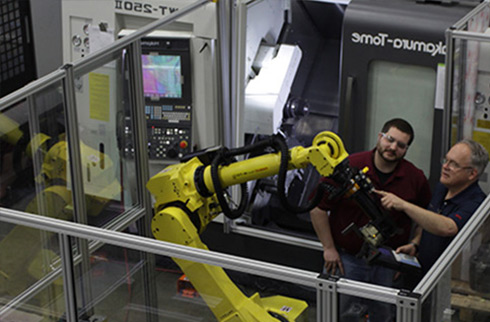
- Afrikaans
- Albanian
- Amharic
- Arabic
- Armenian
- Azerbaijani
- Basque
- Belarusian
- Bengali
- Bosnian
- Bulgarian
- Catalan
- Cebuano
- Corsican
- Croatian
- Czech
- Danish
- Dutch
- English
- Esperanto
- Estonian
- Finnish
- French
- Frisian
- Galician
- Georgian
- German
- Greek
- Gujarati
- Haitian Creole
- hausa
- hawaiian
- Hebrew
- Hindi
- Miao
- Hungarian
- Icelandic
- igbo
- Indonesian
- irish
- Italian
- Japanese
- Javanese
- Kannada
- kazakh
- Khmer
- Rwandese
- Korean
- Kurdish
- Kyrgyz
- Lao
- Latin
- Latvian
- Lithuanian
- Luxembourgish
- Macedonian
- Malgashi
- Malay
- Malayalam
- Maltese
- Maori
- Marathi
- Mongolian
- Myanmar
- Nepali
- Norwegian
- Norwegian
- Occitan
- Pashto
- Persian
- Polish
- Portuguese
- Punjabi
- Romanian
- Russian
- Samoan
- Scottish Gaelic
- Serbian
- Sesotho
- Shona
- Sindhi
- Sinhala
- Slovak
- Slovenian
- Somali
- Spanish
- Sundanese
- Swahili
- Swedish
- Tagalog
- Tajik
- Tamil
- Tatar
- Telugu
- Thai
- Turkish
- Turkmen
- Ukrainian
- Urdu
- Uighur
- Uzbek
- Vietnamese
- Welsh
- Bantu
- Yiddish
- Yoruba
Self-Service Car Wash Tools for Convenient Vehicle Cleaning Solutions
The Rise of Self-Serve Car Wash Equipment
In today’s fast-paced world, convenience is king. This mindset has spilled over into various aspects of our lives, including how we care for our vehicles. The self-serve car wash equipment industry has seen a significant surge in popularity over the past decade, offering car owners the flexibility to wash their vehicles on their own terms. This article explores the benefits of self-serve car washes, the equipment involved, and their impact on the car wash industry.
Benefits of Self-Serve Car Washes
One of the main advantages of self-serve car washes is cost-effectiveness. Traditional full-service car washes often charge a premium for the convenience of having professionals clean your vehicle. In contrast, self-serve car washes allow vehicle owners to pay only for the time and resources they use, making it a wallet-friendly option. With prices typically ranging from $1 to $10, car owners can achieve a thorough wash without breaking the bank.
Additionally, self-serve washes offer flexibility and control. Car owners can wash their vehicles at their own pace, ensuring that every inch of their car receives the attention it deserves. This level of involvement can lead to a more satisfying experience, as many car enthusiasts take pride in personally cleaning their vehicles. Furthermore, the availability of self-serve stations often extends beyond standard business hours, catering to those with busy schedules.
The Equipment Behind Self-Serve Car Washes
self serve car wash equipment

Self-serve car wash stations are equipped with a range of specialized tools designed to facilitate effective cleaning. Key equipment includes high-pressure washers, foam brushes, and spot-free rinse systems. High-pressure washers release a concentrated stream of water, which loosens dirt and grime from the vehicle’s surface. Foam brushes, often equipped with soap, make it easy to scrub away stubborn residues, while spot-free rinse systems utilize purified water to minimize water spots on the vehicle’s surface.
Many self-serve facilities also offer additional services such as waxing, tire cleaning, and even vacuum stations. These services are typically available at the push of a button, allowing customers to tailor their washing experience according to their specific needs.
The Environmental Impact
As our society becomes more environmentally conscious, the self-serve car wash model presents a more sustainable alternative to traditional car washes. Self-serve car washes typically use less water per vehicle than full-service washes. Moreover, many facilities are now incorporating water recycling systems that filter and reuse water, significantly reducing overall water consumption. This innovation not only conserves resources but also lowers the environmental footprint associated with car cleaning.
Conclusion
The popularity of self-serve car wash equipment is a testament to the changing preferences of consumers in our fast-paced world. Offering a combination of cost-effectiveness, flexibility, and control over the washing process, self-serve car washes cater to various needs and lifestyles. As technology continues to advance, we can expect even greater innovations in self-serve offerings, further enhancing the convenience and environmental sustainability of this industry. For car owners looking for a practical and satisfying way to maintain their vehicles, self-serve car washes might just be the ideal solution. The rise of this trend not only demonstrates the evolution of car care but also reflects a broader shift towards better resource management and consumer choice.
-
Integrating Aqua Tunnel Car Wash in Shopping CentersNewsJun.24,2025
-
Gas Station with an Auto Car Wash MachineNewsJun.24,2025
-
Efficiency in Your Aqua Tunnel Car Wash: Power & Water-SavingNewsJun.24,2025
-
Car Wash Business with Advanced Auto Car Cleaning MachinesNewsJun.24,2025
-
Balancing Setup Costs with Aqua Tunnel Car WashNewsJun.24,2025
-
Aqua Tunnel Car Wash: Eco-Design for the Energy-Savvy EntrepreneurNewsJun.24,2025



